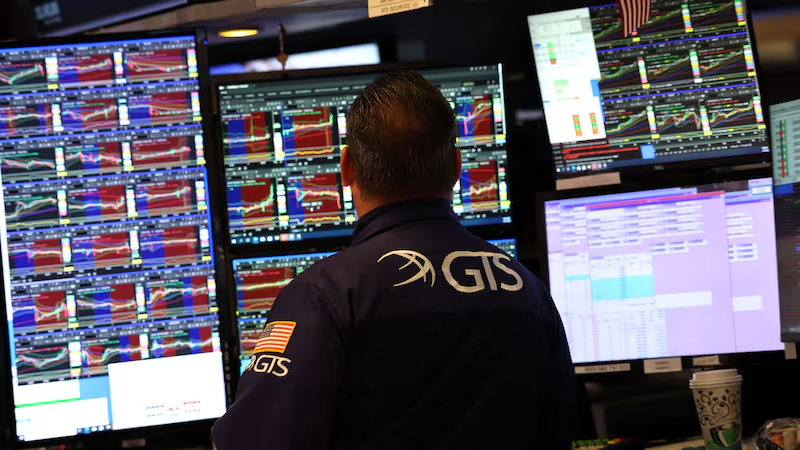Global financial markets went into a tailspin on Friday after U.S. President Donald Trump announced a new 100 per cent tariff on Chinese goods, reigniting his trade war with Beijing and setting off a chain reaction across commodities, equities, and cryptocurrencies.
The move — tied to escalating tensions over China’s export controls on rare earth minerals, which are critical for U.S. technology manufacturing — sent oil prices plunging, triggered a broad Wall Street sell-off, and wiped billions off the value of Bitcoin in a matter of hours.
Trump declared that the new tariffs, along with sweeping U.S. export controls on “any and all critical software,” will take effect on November 1, accusing Beijing of “extraordinarily aggressive” behavior. Chinese goods currently face 30 per cent tariffs, while China’s retaliatory tariffs stand at 10 per cent.
“It is impossible to believe that China would have taken such an action, but they have, and the rest is history,” Trump posted on Truth Social. He also threatened to cancel his upcoming meeting with Chinese President Xi Jinping, further inflaming tensions.
Financial markets reacted immediately. Brent crude fell 3.82 per cent to $62.73 a barrel, while West Texas Intermediate dropped 4.24 per cent to $58.90, deepening losses that began earlier in the day following news of an Israel-Hamas ceasefire.
U.S. equities, which had been posting modest gains through the morning, reversed sharply after Trump’s announcement. The Dow Jones Industrial Average slid 1.9 per cent, the S&P 500 fell 2.7 per cent, and the Nasdaq Composite plunged 3.6 per cent. Major European and Asian indices also fell by at least 0.9 per cent.
The shockwave extended to the cryptocurrency markets. Bitcoin plunged as much as 12 per cent, briefly dipping below $104,000, before recovering to around $112,300 on Saturday. Ethereum dropped 15 per cent, reflecting renewed volatility across the sector.
The tariff escalation comes after months of delicate trade negotiations between Washington and Beijing, including talks in Switzerland and the UK aimed at easing tensions. But China’s recent move to restrict U.S. access to rare earth minerals — vital for electronics, defense systems, and renewable energy technologies — has reignited hostilities.
Trump framed China’s timing as politically calculated, suggesting Beijing was trying to overshadow the Gaza ceasefire announcement, which his administration helped broker. “I wonder if that timing was coincidental?” he wrote.
The sharp policy shift underscores the fragile nature of global trade and financial stability, with markets on edge ahead of the November implementation date. Analysts warn that prolonged tariff warfare could deepen inflationary pressures and disrupt supply chains across multiple industries.

